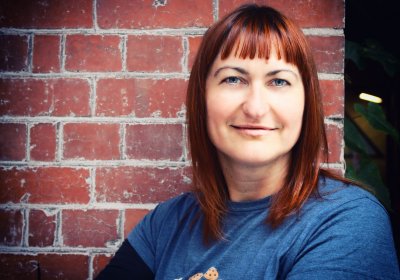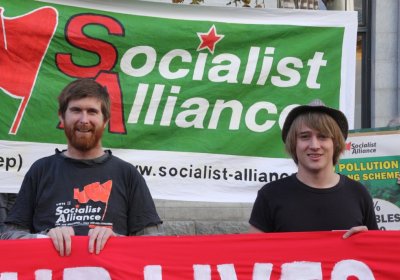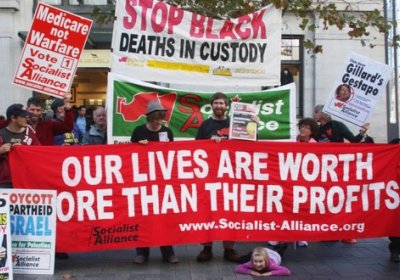849
Victorian Socialist Alliance Federal election candidates strongly condemn the Australian Federal Police raids on the Kurdish Association of Victoria and community members.
Sick of the manipulative, increasingly policy-free barrage of major party negative advertising in the race to the August 21 Australian federal election?
Whichever major party wins the August 21 elections, the real job of fighting for progressive change will remain. Not just because Labor and the Liberal-National Coalition have made this election campaign an ugly race to the right, but also because real change never comes simply through a vote. Even an election that registered real victory, such as the defeat of the hated John Howard Coalition government in November 2007, came on the back of sustained political action by millions of ordinary people focused primarily around the campaign against Work Choices.
- Page 1
- Next page








